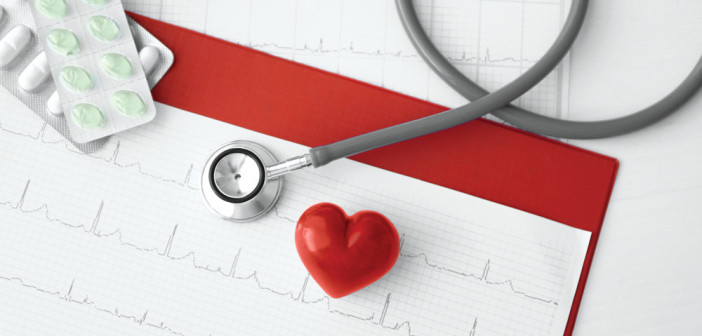It was a Monday morning and I was standing in the middle of the newsroom – a million things to do and a booked-up day – when I got one of “those” phone calls. It was hard for me to process what I was hearing.
“Hey, Leslie. It’s Jason. Look, we just brought Rick to Detroit Receiving Hospital. They think it’s a heart attack.”
My husband? A heart attack?
It was as if the whole world stopped, but my brain went into autopilot. Suddenly, I was in my car driving through heavy rain, memories flooding my mind.
Just three years earlier, I had taken Rick to the hospital after threatening to call his father if he didn’t get into my car. An ambulance? Not an option for him. I had found him on the couch, gray, breathing hard, clutching his chest, sweating, telling me his jaw hurt. Those are all signs of a heart attack. I will never forget standing in the emergency room at Genesys Medical Center, machines beeping, people shouting, my husband looking weaker by the moment. I felt as if the room was getting larger, and I was shrinking.
It was not a heart attack that day three years ago – Rick had experienced Atrial Fibrillation, also called AFib. His heart rate reached 152, then went down to 100, then back up again. I had heard of AFib – it always comes up on those TV hospital shows. It sounded a little less serious than a heart attack.
That time, Rick spent two nights in the hospital, was prescribed medication to regulate his heart rate, and everything seemed fine for the next three years.
It turned out, this latest “episode” was also AFib. But this time was different. The doctors had a hard time getting his heart to return to normal rhythm. Ultimately, after an ultrasound revealed a lot of electrical activity in his heart, he had to have a procedure to shock it back into rhythm.
That first night in the hospital, I learned a lot. My husband had not been back to see his cardiologist since his last AFib experience. He had stopped taking the medication. The biggest revelation: he’s been having smaller episodes that he was able to, as he put it, “ride out.”
It is really a strange feeling, to want to hug someone and sock them in the head at the same time. I was there.
“It’s only AFib, not a heart attack,” he said, smiling at me from his hospital bed.
“Actually, it’s a little more serious than that,” said Rick’s nurse, Carlos, who had been quiet until that moment. He must have decided an intervention was in order, because he went on.
“Rick, every time you have one of those episodes, it damages your heart a little more, making it weaker,” Carlos explained. “It can lead to heart failure. What we are trying to find out right now is if your AFib caused a blood clot. Those can break off and travel to your brain, causing a stroke. AFib can kill you. If your friend had not threatened to beat you up if you didn’t get into his car and come to the ER, you could be dead.”
Those words hung in the air. Rick stopped smirking, but looked at Carlos as if he had betrayed some “bro code” by spewing all of that out in front of me.
Nearly three million Americans live with AFib. I wonder how many others try to ride out symptoms because they don’t want to go to the emergency room for “nothing.” My husband cannot be the only hard-headed one.
At the end of August, Rick will undergo an ablation procedure, which will kill off the areas in his heart chamber that fire electrical impulses that trigger the irregular rhythm. It could be a permanent fix, but it may not.
If the procedure is a success, he may legitimately be able to stop taking blood thinners and rate-regulating drugs. Until then, I’ll do what I can to keep that racing heart on track.
I wonder how many others with AFib try to ride out symptoms because they don’t want to go to the ER “for nothing.”








